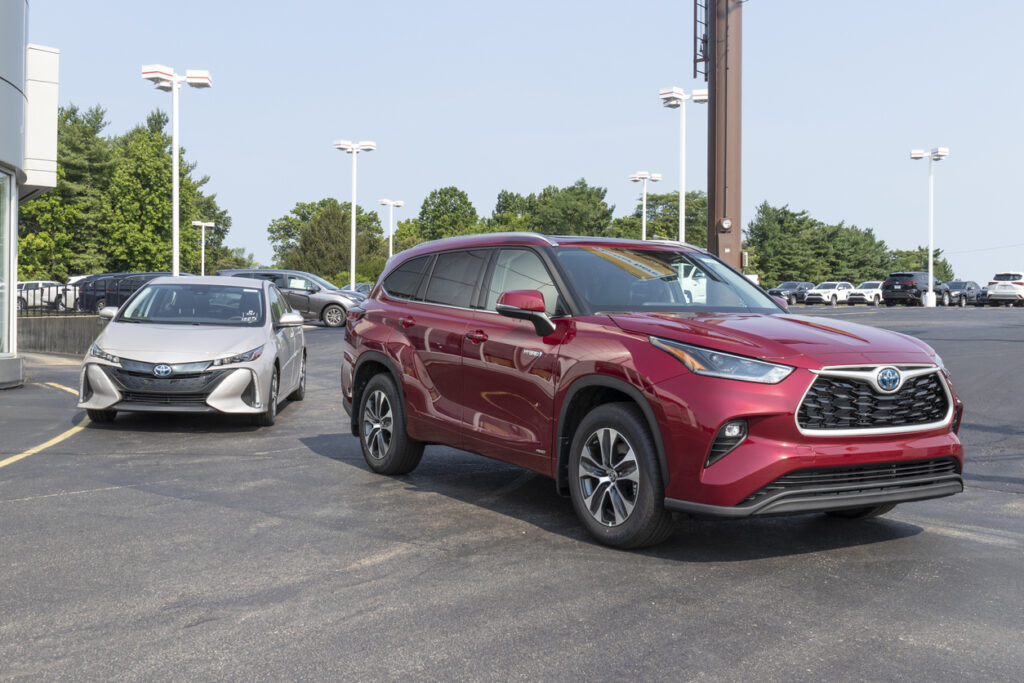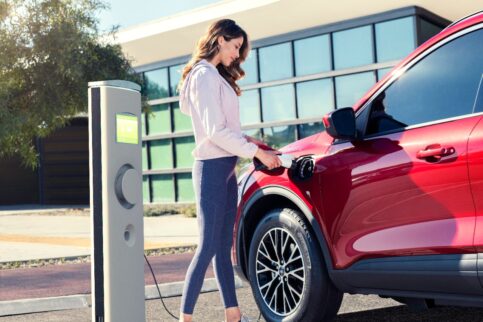Is it true? Do hybrid cars need more maintenance? If so, that would make them more expensive to maintain, right? So much for saving on gas, then. In this blog post, we’ll dig a little more into hybrids and maintenance and answer this burning question for you.
Types of Hybrid Vehicles
First, let’s go over the three main types of hybrid vehicles:
- Full hybrids (FHEVs or HEVs) can run solely on their combustion engine, their electric engine, or a mix of both.
- Mild hybrids use both their combustion and electric engines simultaneously to run.
- Plug-in hybrids (PHEVs) need to be plugged in to charge up their battery, which they can run on alone. The inner workings of PHEVs are often similar to FHEVs, but their battery has a larger capacity, so they drive farther when in electric mode.
In this post, we’ll focus on PHEVs to compare the cost and energy that goes into maintaining a hybrid vehicle versus a gas-powered or electric vehicle.
Hybrid vs. Gas-Powered

Since hybrids have a combustion engine, they require all the same maintenance as gas-operated cars. This includes regular oil changes, belt replacements, and tire alignments. Some hybrid models will also need you to replace their battery air filters periodically. Because of their regenerative braking technology, hybrid and electric vehicles don’t require brake servicing as often as gas-powered cars do.
A study by Consumer Reports found that across their lifetime, PHEVs can be up to 50% cheaper to maintain and repair than gas-powered vehicles. Of course, these savings can vary depending on how often you drive, the price of gas, and how long you have the vehicle for.
Because of their intricate design, serious repairs will cost more on a hybrid. The initial purchase price of a hybrid is also significantly higher. On average, though, routine maintenance for a hybrid should cost the same or less than a regular gas-powered vehicle.
Hybrid vs. EV
The addition of a combustion engine means hybrids need more maintenance than pure electric vehicles. The initial purchase cost of a hybrid is often cheaper than an EV, but if they run into issues with their combustion engine, your maintenance bill can quickly climb.
The same Consumer Reports study found that EVs and PHEVs cost about the same to maintain over their lifetime. In the first 160,000 km, however, EVs are roughly 33 percent cheaper. Once again, driving habits will have a significant influence on this percentage.
Do Hybrids Require More Maintenance?
Not necessarily. As with any vehicle, you can take steps to keep your hybrid in top shape to reduce extra maintenance. Here are some tips:
- Brake and accelerate smoothly.
- Use the “economy mode” feature.
- Park inside when possible.
- Keep it plugged in when not in use (PHEVs).
An excellent way to learn how to care for your vehicle is to read the owner’s manual. It can provide you with plenty of valuable information for your specific model’s needs.
The Bottom Line
Basic maintenance for a hybrid vehicle costs either the same or slightly less than a solely gas-powered car. Compared to an EV, caring for a hybrid should cost about the same or slightly more. Keep in mind that the model, how long you’ll drive the car, and your own driving habits will affect these numbers.
Though not for everyone, hybrids are worth considering for those who frequently make long commutes and are worried about the range anxiety typically associated with EVs. The best way to limit your maintenance expenses is to take good care of whatever you drive and make informed decisions when purchasing a new vehicle. To read more about the advantages of hybrids, check out this post.


